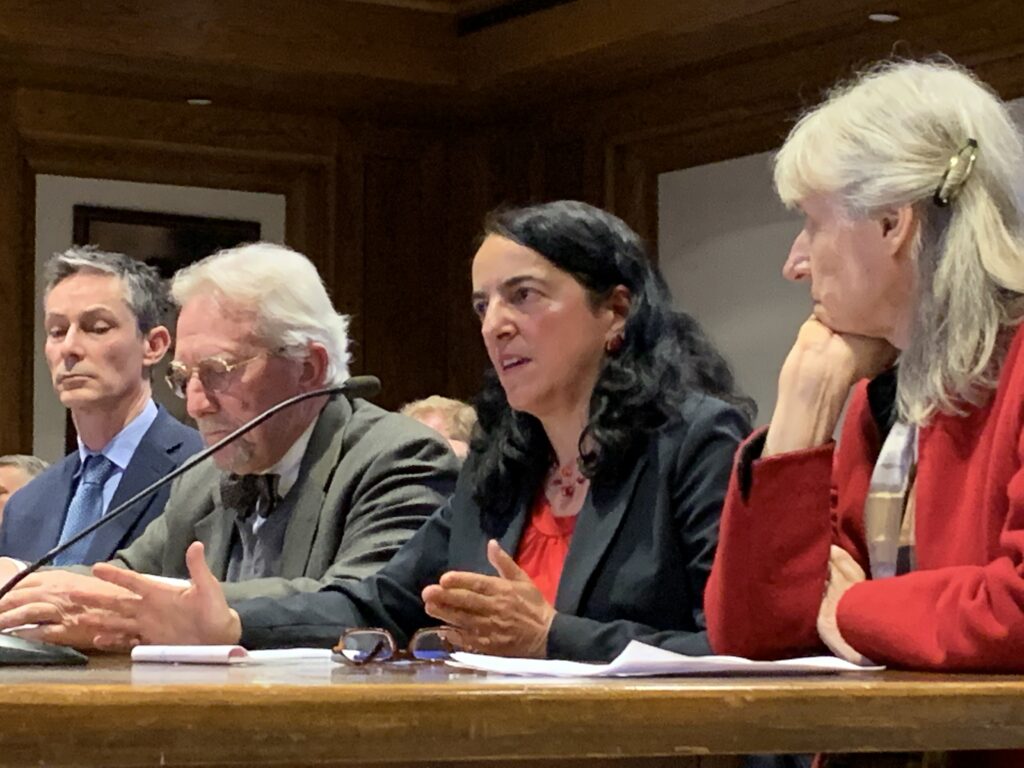Public Defenders Seek Fair Retirement Classification

Prosecutors and public defenders have stressful jobs, and both are frequently placed face-to-face with the trauma that inevitably surfaces when working in the criminal justice system.
But when it comes to retirement, assistant district attorneys and those who work for the Committee for Public Counsel Services are treated much differently. Prosecutors receive enhanced retirement benefits, while CPCS staffers are placed in the lowest retirement classification of anyone in the courtroom.
In response, CPCS representatives went to the State House on Nov. 12 to ask for equal treatment.
“Our attorneys have to be exposed to the same emotionally stressful and traumatic events as the district attorneys, and therefore it is only fair that they are given the same rates of compensation, which includes the same retirement,” said Pasqua Scibelli, a CPCS staff attorney with the Alternative Commitment and Registration Support Unit.

CPCS staffers and leadership testified before the Joint Committee on Public Service and described the need for retirement parity with state prosecutors – arguing that CPCS’s retirement classification should be shifted from Group 1 to Group 4.
“I feel strongly that the job we do provides real justice in our system, but we have jobs where inherently there is stress and some physical danger,” said Norma Wassel, director of social service advocacy for CPCS. “I hope you would balance the scales of justice the way that we do.”
In 1996, state law was amended to include district attorneys and assistant district attorneys with 10 years of service in the Group 4 retirement classification. For years, CPCS has filed bills petitioning the Legislature to equal treatment for its attorneys, investigators and social workers.
Mark Larsen, director of CPCS’s Mental Health Division, said his attorneys experience “vicarious trauma” through their interactions with clients who “are at their most vulnerable and agitated when we meet with them.”
“One of our attorneys got a call from a very distressed client from one of the hospitals, and they were threatening suicide. She went and met with him for several hours. One of his concerns was that he couldn’t trust the staff,” Larsen said. “After several hours of working with this suicidal patient, he was able to return to his unit and eventually engaged with the staff. He was eventually discharged.”
Ziyad Hopkins, a staff attorney who has worked for CPCS for more than 20 years, said he has also received a call from a suicidal client.
“I drove to the client’s house, and tried to help them in this time of crisis,” Hopkins said. “Luckily, I was able to. I am proud that people can turn to me, and I am proud to be in that role, but it takes a toll.”

He added that changing CPCS’s retirement classification would help him with his two passions – the law and his family.
“I am loyal to the rule of law, and I am proud to work with my brothers and sisters at the Bar and upholding the rule of law,” Hopkins said. “I am also devoted to my family – my wife and my two daughters – and believe the passage of this bill will allow me to honor both: My loyalty to the rule of law and the devotion to my family.”
training
Categories
- Awards
- CAFL Training
- Careers
- Chief Counsel's Office
- Children and Family Law
- Committee Meetings
- COVID Updates
- Criminal Defense
- Criminal Defense Training
- General Counsel's Office
- Human Resources
- Information Technology
- Jobs
- Mental Health
- MHLD Training
- News
- Private Counsel Division
- Public Defender Division
- Resources
- Training
- Training Department
- Training Technology Updates
- Uncategorized
- YAD Training
- Youth Advocacy